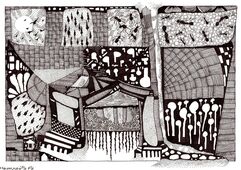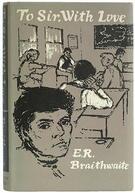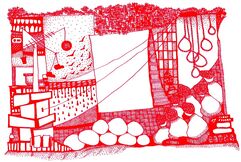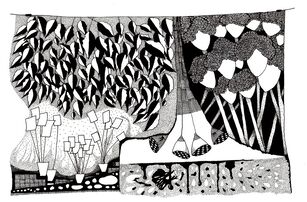On Being a Preceptor
Pranav Prakash
Pranav Prakash
My interest in teaching and mentoring was aroused for the first time in a Hindu monastery in east India. A Bengali monk unexpectedly asked me if I would volunteer to teach some destitute children in the nearby slums. He had undertaken an independent initiative to educate socially outcast and economically disadvantaged children in our society. This initiative was a spiritual pursuit for him. He believed that one could liberate their soul from the cycle of life and rebirth by selflessly serving the poor and dispossessed. I, on the other hand, was an immature adolescent who had yet to grasp the basic import of spirituality, liberation and education. Nor had I contemplated on the necessity of sharing my knowledge and skills with others. For my first lesson, the monk asked me to discuss the significance of Indian Railways to a group of children who had never seen a moving train in their lives. In deference to the revered monk, I consented to teach and arrived at his makeshift classroom on time.
|
Underground | Inkwork | © 2024 Pranav Prakash
|
On being surrounded by a class of curious children who aspired to do something good in their lives, I suddenly became aware of the crucial role teachers play in their students’ quest for better living conditions. These children’s enthusiasm for learning motivated me to engage closely with their thought processes and worldviews. It encouraged me to develop innovative ways to help them imagine and grapple with new ideas. From drawing sketches of trains and cars to organizing field trips to neighboring bus stations and libraries, I adopted an eclectic set of strategies to interest them in my lessons. Whenever I led my students to newer avenues of learning and perception, I experienced a profound sense of inner satisfaction and self-fulfillment. My monk was pleased with my commitment to teaching, and my monastery awarded me a certificate of appreciation. For the first time in my life, I realized that I was capable of making a difference in the lives of others and that the true worth of one’s learning is manifest only when it is generously shared with others.
|
|
On witnessing my interest in teaching and mentoring, another monk loaned his copy of E. R. Braithwaite’s autobiographical novel, To Sir, With Love (1959), for my summer reading. Braithwaite was born in Guyana, then a British colony, in 1912. His parents were educated at the University of Oxford. He, too, had studied at elite institutions like the Queen’s College in Guyana, the City College of New York in the US and the University of Cambridge in England. Despite his exceptional résumé, he was repeatedly denied a job in the engineering sector and ended up becoming a teacher in a secondary school in east London. Braithwaite narrates a moving account of his struggles against racism and his efforts to educate children who were impoverished, misbehaved and ignorant of their innate potential or career prospects. The racism in Braithwaite’s world not only resonated with the casteist exclusion and religious segregation of my slum-dwelling students but also foreshadowed my experiences as an underprivileged student in some of the most elite schools of India. These early experiences taught me—long before I commenced my graduate studies in the US—that the gravest pedagogical challenge for our society is the creation of inclusive, diverse and impartial classrooms. I, therefore, endeavor to develop courses and teaching methods that enable students to appreciate the import of cultural diversity, religious pluralism, conscientious dialogue and ethical living.
|
Front Cover of the First Edition, 1959
|
Each class of students brings a unique set of shared concerns, assumptions and biases about their world. If our syllabi and teaching methods are not sensitive to their thought processes and worldviews, then our students may fail to attain the learning objectives of our course. I, therefore, maintain a certain degree of flexibility in my syllabus, and I change readings and assignments based on students’ responses in the classroom. A flexible syllabus is intended to facilitate the learning process and self-reflection of my students; it does not alter the learning objectives of my course. This strategy is most effective when students actively participate in classroom discussions and activities.
|
Notice | Inkwork | © 2024 Pranav Prakash
|
To enhance the classroom participation of my students, I engage them in a variety of activities and games: role-playing, moot courts, parliamentary debates, brainstorming storylines, acted charades and trivia quizzes. For explaining the biography of Buddha and the challenges of reconstructing his life story from extant sources, I once collected pictorial illustrations from several south and east Asian cartoons, shuffled this pack of illustrations and distributed them among smaller groups of students in my class. Each group had to create and present a plausible life story of Buddha based on the few cards they received from the pack. Apart from appreciating how multiple narrative traditions emerge in oral cultures and what issues are relevant to historiography, students enjoyed interacting with their classmates while reimagining the story behind Buddhist illustrations. This kind of classroom activity not only contributes to the active learning of students but also inculcates the value of shared learning and collaboration among them. While developing a classroom activity, I pay close attention to the learning objective of my syllabus and the general behavior of my students.
|
To ensure that my students are benefiting from my teaching methods and strategies, I like to receive their feedback as often as I can. I usually begin my classroom sessions by asking my students what they liked and/or disliked in the previous session. I remember names of all students in my class and I regularly call upon them to participate in classroom discussions. When I notice a student is inactive and/or under-performing in my course, I reach out to them either at the end of the class or via emails. As a teacher and mentor, I try to remain readily accessible to my students. I encourage my students to make use of my office hours, emails and social-media accounts. If needed, I set up additional appointments with them.
|
My teaching practices are informed by recent advances in digital humanities and pedagogy research. I frequently make use of weblogs, networking platforms, data visualization, computational text analysis, textual encoding initiatives and similar tools in my courses. In addition to attending workshops on the use of digital media and technologies at the University of Iowa’s Digital Scholarship & Publishing Studio, H-Net and LinkedIn, I have received an associate-level certification from the Center for the Integration of Research, Teaching, and Learning (CIRTL). This certification program promotes evidence-based learning in classrooms and recognizes that academic excellence and diversity are necessarily intertwined phenomena. Aided by CIRTL training and digital humanities tools, I continually look for ways to make my pedagogy more effective and inspirational for my students. In recognition of my commitment to teaching and exceptional service to undergraduate students, the University of Iowa’s Department of Religious Studies awarded me with the Alice Lampe Heidel & John B. Heidel Award.
|
Witness | Inkwork | © 2024 Pranav Prakash
|
Each day of teaching is a fresh opportunity for me to reexamine the contours of my thought and subsequently improve my understanding of the self and the world. The everyday needs and challenges of teaching and learning are not always met by past experiences and preconceived insights. Contrary to the naïve expectations I held at the beginning of my academic career, I now understand how some intellectual capabilities and ideational worldviews are gradually acquired over a longer period of time, even when some habits of thought are stubbornly resistant to change. My most inspiring mentors were, therefore, endowed with immense patience and compassion. I always strive to follow in their footsteps.




